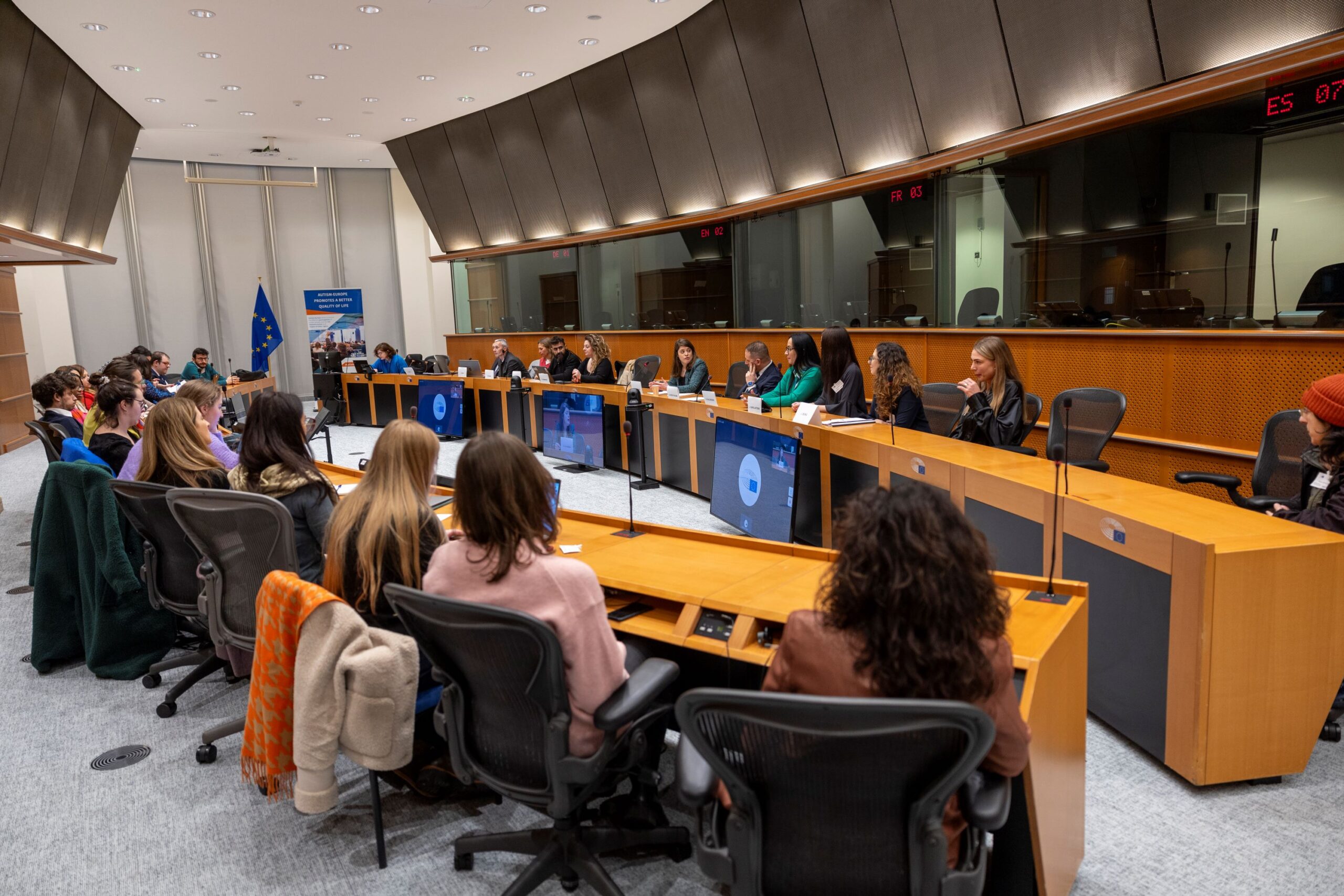
On 30 January, hosted by Member of European Parliament (MEP), Alex Agius Saliba from Malta, Autism-Europe (AE) discussed the promotion of employability for autistic people in Europe. On this occasion, partners representatives presented the results of the Erasmus+ project AFS Employability and Talenti Latent at the European Parliament (EP) in Brussels.
Opening the event MEP Agius Saliba called for the implementation of existing legislation safeguarding the right to employment for autistic people across Europe through concrete actions. Then Autism-Europe’s director Aurelie Baranger underlined that developing access to employment for autistic people requires a multipronged approach. It should include access to vocational training, accessibility and reasonable accommodation in the recruitment process as well as in the workplace and adequate recognition of autistic’s people skills.
Autism Friendly Spaces: The Employability twist
On the first panels, partners from Greece, Malta and Lithuania presented the results of the Erasmus+ project Autism-Friendly Spaces – The Employability Twist. Olga Romanou and Nikos Vasalos, psychoeducational workers from Astiki Etaireia Psichokoinonikon Meleton (Ploes) in Greece introduced the project highlighting the benefit of reasonable accommodation in the workplace. Jessica Borg, a staff member of the Committee for the Rights of Persons with Disabilities (CRPD) Malta pointed to concrete policy recommendations for employment inclusion developed during this project and addressed to various governance levels and stakeholders. Finally, Ieva Karulaitienė and Aušrinė Galdikienė, two social workers from Jaunuoliu Dienos Centras (JDC) in Lithuania presented the concrete case of the labour market inclusion of Sandra, an autistic woman from that Baltic country. AFS Employability was a spin off from the Autism Friendly Spaces project presented in July 2022 in the European Parliament in the presence of Julia Farrugia Portelli, Minister of Inclusion from Malta and also hosted by MEP Agius Saliba.
Talenti Latenti – Building Pathways to Employment through Skills Validation
The second half of the event was dedicated to the results of the Erasmus+ project Talenti Latenti promoting skills validation among autistic people. Therefore, Luca Monti from the quality assurance company CEQF from Italy explained the need for skills validation for neurodivergent people to obtain work and presented the experience of Andrea, an Italian graphic designer brought into employment through this project. Afterwards, Silvia Muñoz, a representative from Plena Inclusion in Spain (member of Inclusion Europe) explained how they piloted the training developed through this project among people with intellectual disabilities and the importance of developing initiatives in the field to foster employability. Finally, Etxane O. Scott, project and research officer at Autism-Europe highlighted the need for relatives of autistic people to be trained to assist them in validating their skills and presented the guide developed by Autism-Europe for this purpose. Monika Chaba, policy officer at the Directorate Employment and Social Affairs of the European Commission closed the panels by highlighting the work conducted in the framework of the Employment Disability Package unveiled by the Commission in 2022
More about Erasmus+
Erasmus+ is the EU’s programme to support education, training, youth and sport in Europe. It has an estimated budget of €26.2 billion. The 2021-2027 programme places a strong focus on social inclusion, the green and digital transitions, and promoting young people’s participation in democratic life.